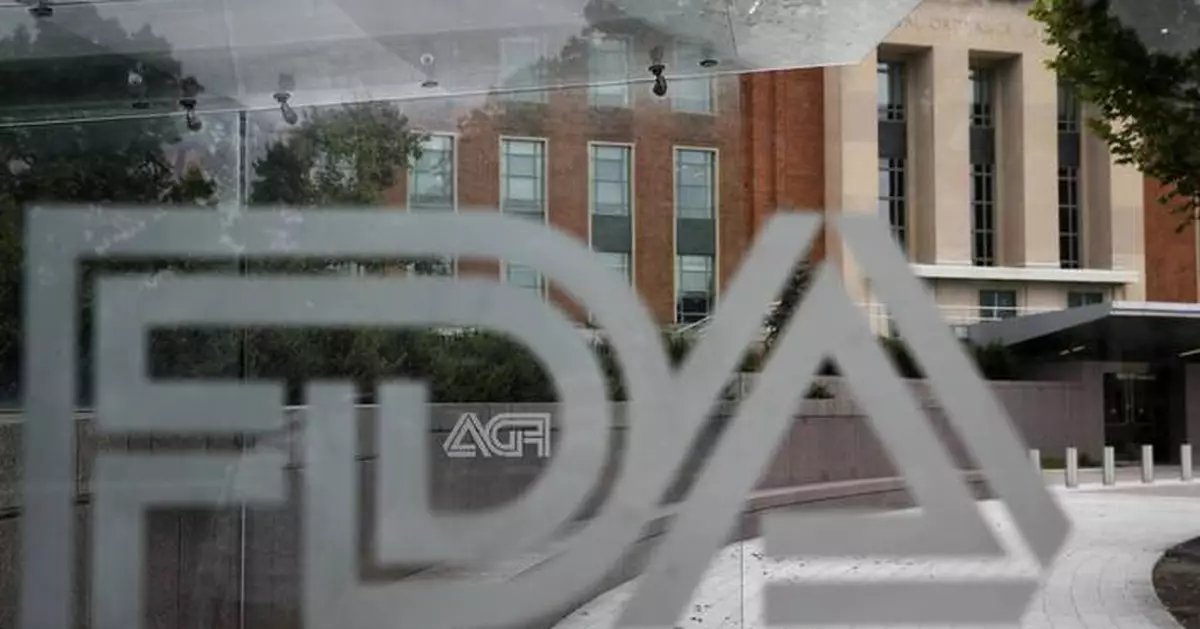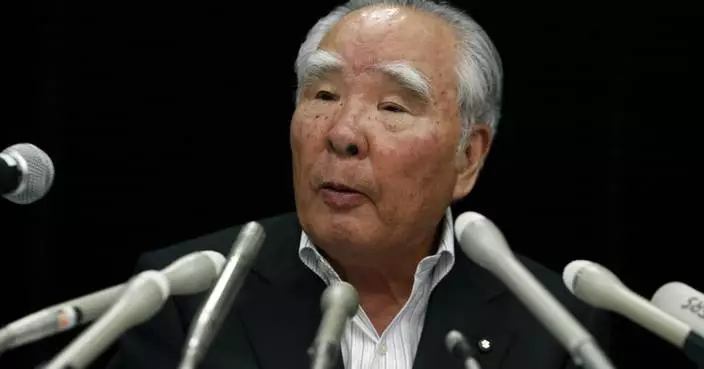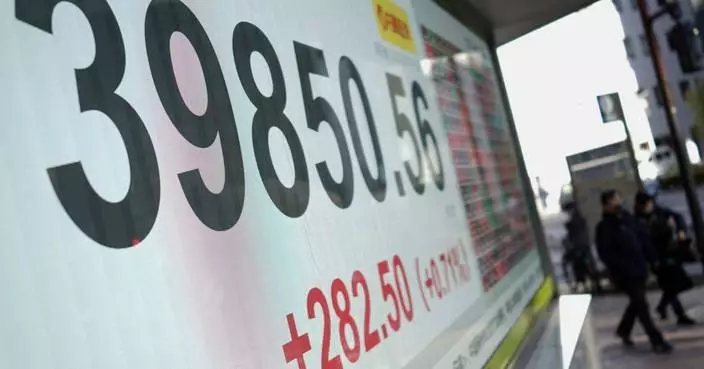WASHINGTON (AP) — Cosmetic companies would have to take extra steps to ensure that any products containing talc are free of asbestos under a federal rule proposed Thursday.
The proposal from the Food and Drug Administration and mandated by Congress is intended to reassure consumers about the safety of makeup, baby powder and other personal care products.
It follows years of lawsuits against Johnson & Johnson and other companies alleging links between talc-based baby powder and cancer.
Despite the lawsuits, research has found mixed evidence of a potential link between cancer and talc, although the possibility has been recognized for decades because of how it is mined.
Talc is a mineral used to absorb moisture or improve the texture, feel and color of cosmetics. It is mined from underground deposits that are sometimes located near the toxic mineral asbestos. The risk of cross contamination has long been recognized by cosmetic companies.
But recent FDA-sponsored testing hasn't uncovered any safety issues. Since 2021, laboratory analysis of more than 150 cosmetic samples has come back negative for asbestos, according to the FDA.
Still, concerns about the risk prompted Congress to pass a 2023 law requiring the FDA to release new industry standards for asbestos testing.
Dr. Linda Katz, the director of the FDA's Office of Cosmetics and Colors, said in a statement that the agency has “carefully considered the scientific evidence and complex policy issues related to detecting and identifying asbestos in talc and talc-containing cosmetic products.”
"We believe that the proposed testing techniques are appropriate methods to detect asbestos to help ensure the safety of talc-containing cosmetic products,” Katz said.
The long-running litigation against J&J alleges that the company’s talc baby powder caused women to develop ovarian cancer, when used for feminine hygiene.
A J&J subsidiary has proposed paying roughly $8 billion to settle tens of thousands of lawsuits. As part of the deal, the subsidiary would declare bankruptcy, although that proposal has been challenged in court by the Justice Department.
J&J removed talc from its baby powder in the U.S. market in 2020 and then internationally in 2023. The company says it continues to stand by the safety of its products.
Determining the root cause of cancer is difficult, especially in cases of ovarian cancer, which is a relatively rare form of the disease. Even large studies in thousands of women might not gather enough data to show a clear connection or definitively rule one out. The American Cancer Society says that, if there is an increased risk of cancer due to talc, “it is likely to be very small.”
The Associated Press Health and Science Department receives support from the Howard Hughes Medical Institute’s Science and Educational Media Group. The AP is solely responsible for all content.
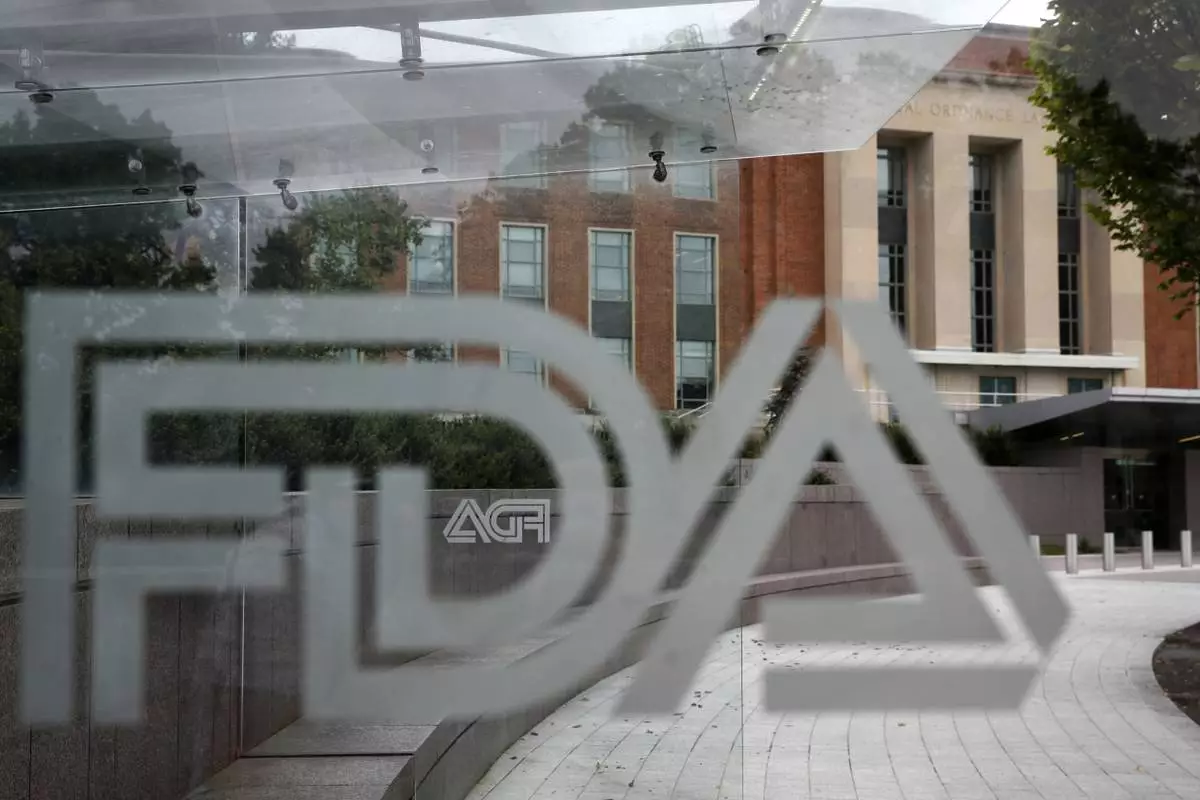
FILE - A U.S. Food and Drug Administration building is seen behind FDA logos at a bus stop on the agency's campus in Silver Spring, Md., on Aug. 2, 2018. (AP Photo/Jacquelyn Martin, File)
FRANKFURT, Germany (AP) — German President Frank-Walter Steinmeier on Friday ordered parliament dissolved and set new elections for Feb. 23 in the wake of the collapse of Chancellor Olaf Scholz's coalition, saying it was the only way to give the country a stable government capable of tackling its problems.
Scholz lost a confidence vote on Dec. 16 and leads a minority government after his unpopular and notoriously rancorous three-party coalition collapsed on Nov. 6 when he fired his finance minister in a dispute over how to revitalize Germany’s stagnant economy.
Steinmeier said he made the decision because it was clear after consultation with party leaders that there was no agreement among Germany's political parties on a majority for a new government in the current parliament.
“It is precisely in difficult times like these that stability requires a government capable of taking action and a reliable majority in parliament,” he said as he made the announcement in Berlin.
"Therefore I am convinced that for the good of our country new elections are the right way.”
Since the post-World War II constitution doesn’t allow the Bundestag to dissolve itself, it was up to Steinmeier to decide whether to dissolve parliament and call an election. He had 21 days to make that decision. Once parliament is dissolved, the election must be held within 60 days. Leaders of several major parties agreed earlier on the election date of Feb. 23, seven months earlier than originally planned.
Steinmeier warned about outside interference in the poll, saying it is “a danger to democracy, whether it is covert, as was evidently the case recently in the Romanian elections, or open and blatant, as is currently being practiced particularly intensively on platform X.”
A top Romanian court annulled the first round of the country’s presidential election, days after allegations emerged that Russia ran a coordinated online campaign to promote the far-right outsider who won the first round.
The campaign is already well underway. Polls show Scholz’s party trailing the conservative opposition Union bloc led by Friedrich Merz. Vice Chancellor Robert Habeck of the environmentalist Greens, the remaining partner in Scholz’s government, is also bidding for the top job — though his party is further back. If recent polls hold up, the likely next government would be led by Merz as chancellor in coalition with at least one other party.
Key issues include immigration, how to get the sluggish economy going, and how best to aid Ukraine in its struggle against Russia.
The populist, anti-immigration Alternative for Germany, or AfD, which is polling strongly, has nominated Alice Weidel as its candidate for chancellor but has no chance of taking the job because other parties refuse to work with it.
Germany’s electoral system traditionally produces coalitions, and polls show no party anywhere near an absolute majority on its own. The election is expected to be followed by weeks of negotiations to form a new government.
It’s only the fourth time that the Bundestag has been dissolved ahead of schedule under Germany’s post-World War II constitution. It happened under Chancellor Willy Brandt in 1972, Helmut Kohl in 1982 and Gerhard Schroeder in 2005. Schroeder used the confidence vote to engineer an early election narrowly won by center-right challenger Angela Merkel.
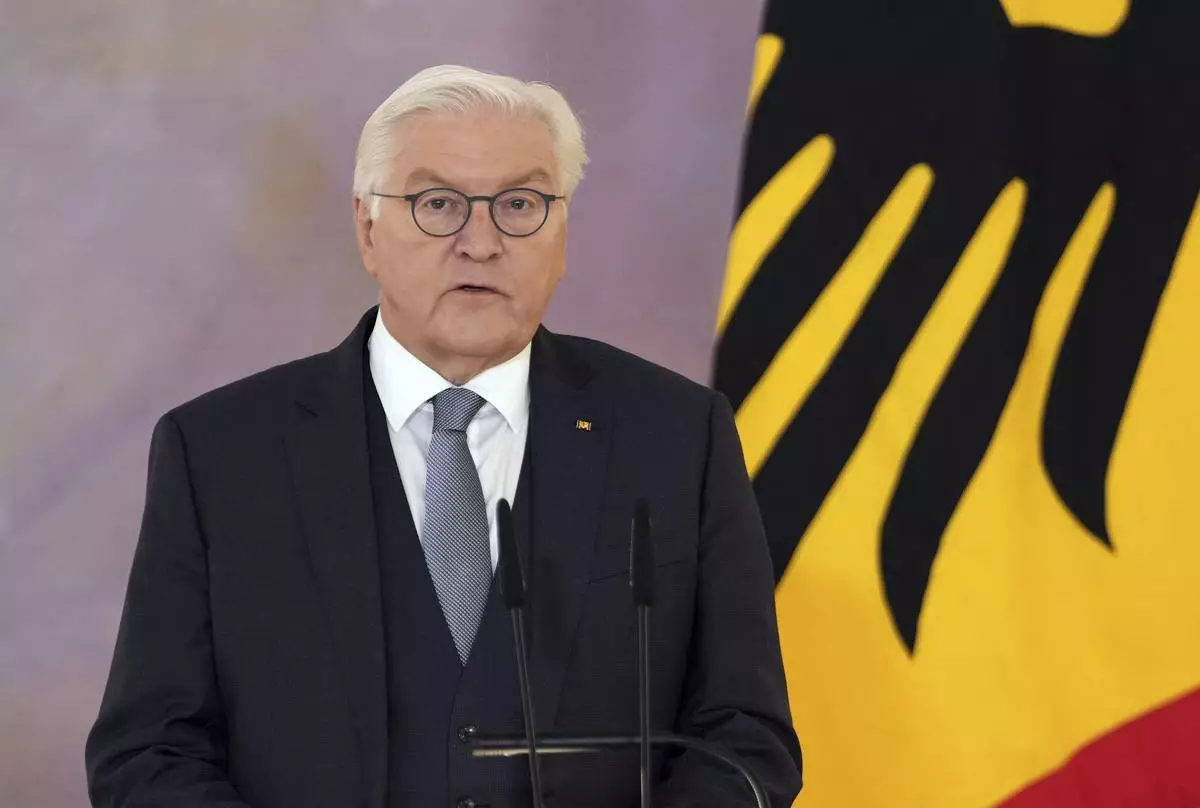
German President Frank-Walter Steinmeier announces the decision to dissolve the German Bundestag and schedules a new election for February 23 next year, in Berlin, Friday, Dec. 27, 2024. (S'ren Stache/dpa via AP)

German President Frank-Walter Steinmeier announces the decision to dissolve the German Bundestag and schedules a new election for February 23 next year, in Berlin, Friday, Dec. 27, 2024. (S'ren Stache/dpa via AP)



